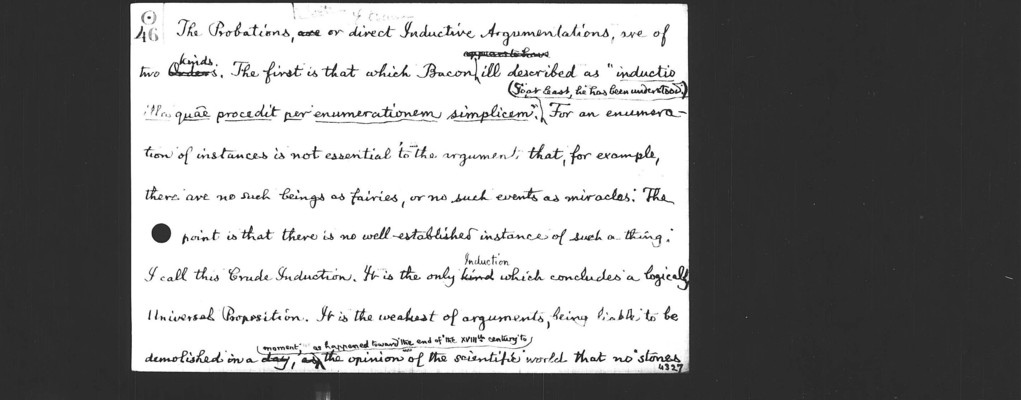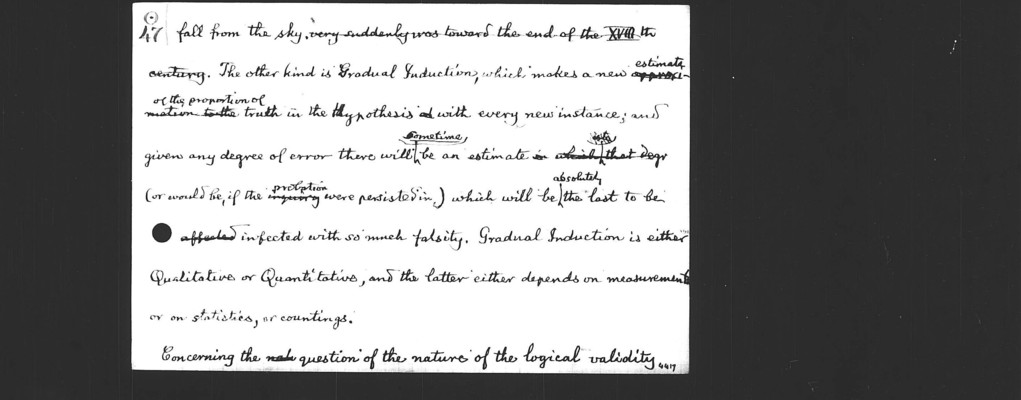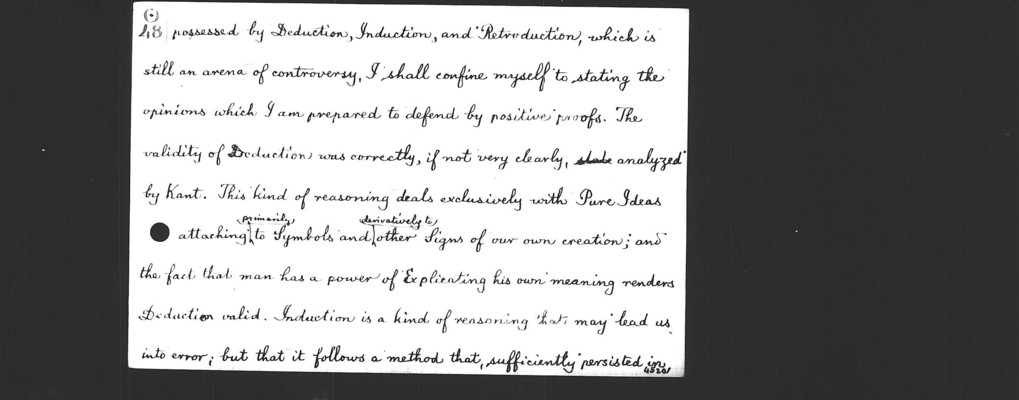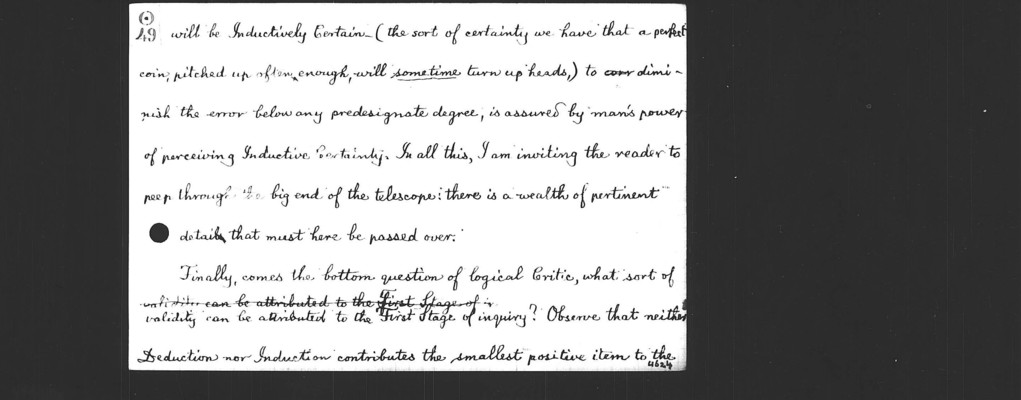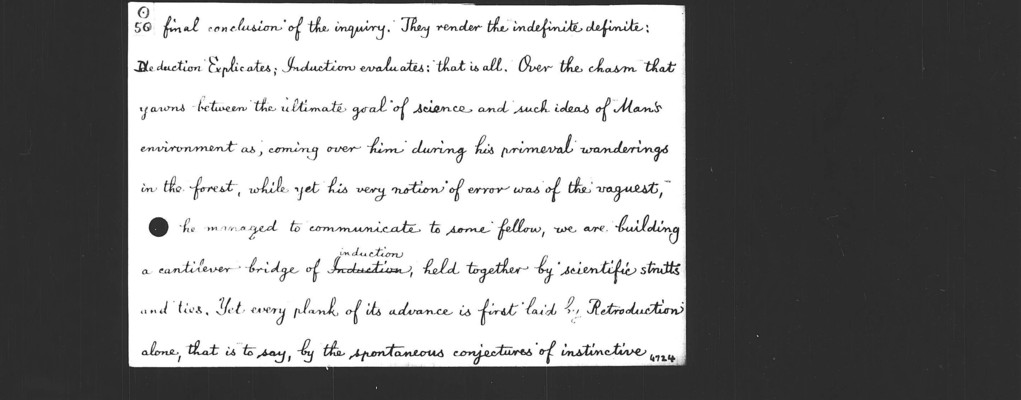Pages
46
O.46
The Probations, or direct Inductive Argumentations, are of two kinds. The first is that which Bacon ill described as "inductio illa quæ procedit per enumerationem simplicem." (So at least, he has been understood.) For an enumeration of instances is not essential to the argument that, for example, there are no such beings as fairies, or no such events as miracles. The point is that there is no well-established instance of such a thing. I call this Crude Induction. It is the only Induction which concludes a logically Universal Proposition. It is the weakest of arguments, being liable to be demolished in a moment, as happened toward the end of the XVIIIth century to the opinion of the scientific world that no stones
47
O.47
fall from the sky. The other kind is Gradual Induction, which makes a new estimate of the proportion of truth in the Hypothesis with every new instance; and given any degree of error there will sometime be an estimate (or would be, if the probation were persisted in,) which will be absolutely the last to be infected with so much falsity. Gradual Induction is either Qualitative or Quantitative, and the latter either depends on measurements or on statistics, or countings.
Concerning the question of the nature of the logical validity
48
O.48
possessed by Deduction, Induction, and Retroduction, which is still an arena of controversy, I shall confine myself to stating the opinions which I am prepared to defend by positive proofs. The validity of Deduction was correctly, if not very clearly, analyzed by Kant. This kind of reasoning deals exclusively with Pure Ideas attaching primarily to Symbols and derivatively to other Signs of our own creation; and the fact that man has a power of Explicating his own meaning renders Deduction valid. Induction is a kind of reasoning that may lead us into error; but that it follows a method that, sufficiently persisted in,
49
O.49
will be Inductively Certain—(the sort of certainty we have that a perfect coin, pitched up often enough, will sometime turn up heads,) to diminish the error below any predesignate degree, is assured by man's power of perceiving Inductive Certainty. In all this, I am inviting the reader to peep through the big end of the telescope: there is a wealth of pertinent detail that must here be passed over.
Finally, comes the bottom question of logical Critic, what sort of validity can be attributed to the First Stage of inquiry? Observe that neither Deduction nor Induction contributes the smallest positive item to the
50
O.50
final conclusion of the inquiry. They render the indefinite definite: Deduction Explicates; Induction evaluates: that is all. Over the chasm that yawns between the ultimate goal of science and such ideas of Man's environment as, coming over him during his primeval wanderings in the forest, while yet his very notion of error was of the vaguest, he managed to communicate to some fellow, we are building a cantilever bridge of induction, held together by scientific struts and ties. Yet every plank of its advance is first laid by Retroduction alone, that is to say, by the spontaneous conjectures of instinctive
